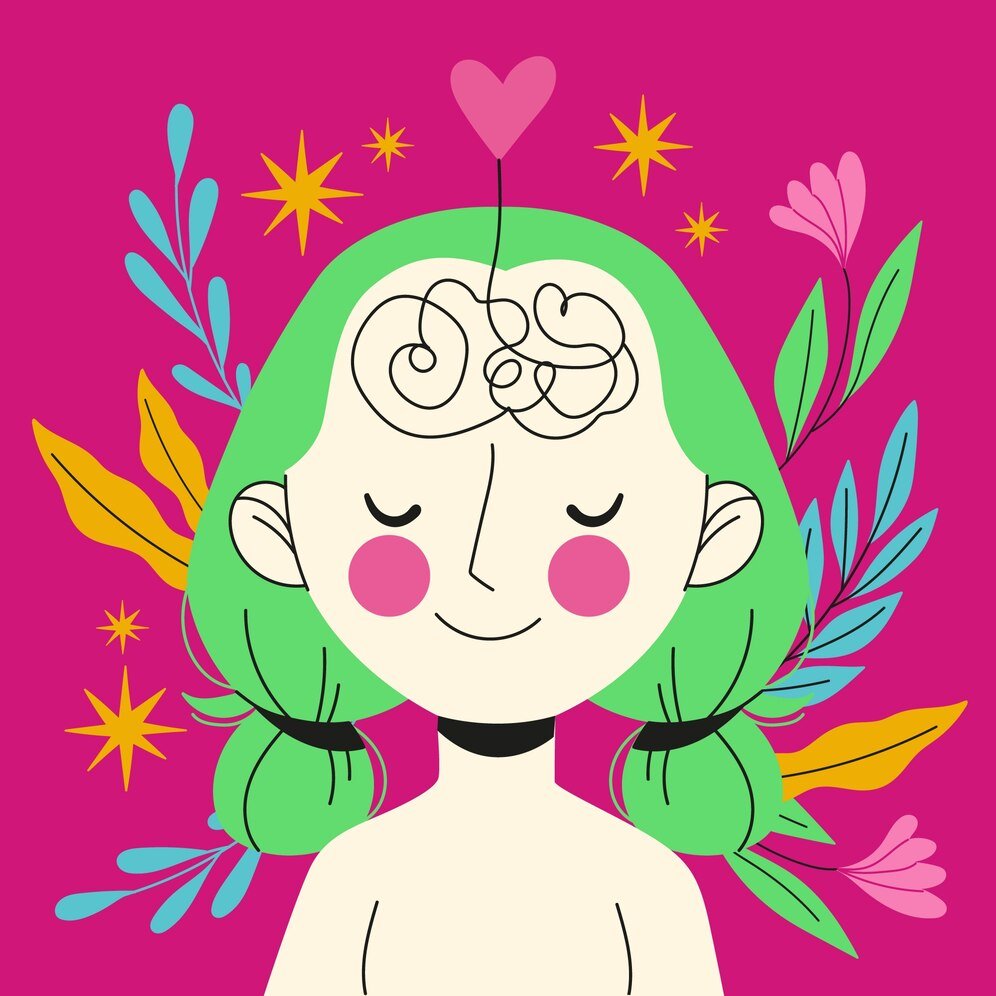Understanding Neurodiversity & Embracing the Diversity of the Human Brain
by Anne Ueberbach
Assistant Director / Counsellor
Understanding Neurodiversity & Embracing the Diversity of the Human Brain
For centuries, humanity has celebrated the diversity of cultures, ethnicities, and abilities. Yet, until recently, the diversity of the human brain has remained largely unacknowledged. The concept of neurodiversity, coined in the late 1990s, revolutionizes our understanding of human cognition and behavior. Neurodiversity recognizes that every brain is uniquely wired, with its own strengths, challenges, and processing styles.
What is Neurodiversity?
Neurodiversity acknowledges that every person experiences life uniquely, with distinct thinking, learning, and behavioral patterns. This perspective rejects the notion of a single "correct" approach, instead celebrating differences as valuable aspects of human diversity. The term neurodiversity encompasses the full spectrum of human variation, focusing on neurological and developmental differences, including Autism Spectrum Disorder (AD), Attention Deficit Hyperactivity Disorder (ADHD), Dyslexia, Tourette’s Syndrome, learning disabilities, and other neurological conditions. These conditions are not defects or disorders, but rather natural variations in human brain function and structure.
The Shift in Understanding Neurodiversity
Traditionally, neurological differences were viewed as deficits or pathologies. However, the neurodiversity movement challenges this perspective, advocating for acceptance, inclusivity, and support. Originating in the 1990s, the neurodiversity movement seeks to promote acceptance and inclusion, empower self-advocacy, and challenge stigmatizing attitudes. Australian sociologist Judy Singer pioneered the term neurodiversity, advocating for equality and recognition of "neurological minorities."
This shift recognized that:
Neurological differences are natural and common.
Each individual has unique strengths and challenges.
Accommodations and support can empower neurodiverse individuals.
Words Matter in Neurodiversity
To promote inclusivity, neurodiversity advocates recommend using non-judgmental language that respects individuals' preferences. While some disability organizations favor person-first language (e.g. "person with autism"), research suggests the autistic community largely prefers identity-first language (e.g. "autistic person"). To avoid assumptions, it's essential to ask individuals about their preferred language and how they wish to be addressed.
Types of Neurodiversity
-
Autism Spectrum Disorder (ASD) is a complex neurological condition that impacts social interaction, communication, learning, and behavior. Characterized by its diverse range of symptoms and severity levels, ASD is aptly described as a spectrum disorder. While ASD can be diagnosed at any stage of life, its symptoms typically emerge during the first two years of childhood, earning it the classification as a developmental disorder.
ASD is commonly characterized by:
Difficulty with communication and interaction with other people
Restricted interests and repetitive behaviors
Symptoms that affect their ability to function in school, work, and other areas of life
-
ADHD is a neurodevelopmental condition characterized by chronic symptoms of inattention, hyperactivity, and impulsivity that hinder daily functioning and personal growth.
Typically emerging in childhood, ADHD symptoms can persist into adulthood, impacting daily life, relationships, and academic or professional performance. While commonly associated with children and adolescents, ADHD also affects many adults.
-
Tourette’s Syndrome is a condition that causes involuntary verbal and/or motor “tics”. It commonly starts during childhood between the age of 2-14 years and is commonly triggered by stress, anxiety, excitement, sensory overload or tiredness amongst others. Symptoms may also improve over time and in some cases go away completely.
Examples of tics may include:
Physical:
Blinking / eye rolling
Grimacing
Shoulder shrugging
Jerking of the head or limbs
Jumping / twirling
Touching objects or other people
Vocal:
Grunting / throat clearing / coughing
Whistling
Animal sounds
Saying random words or phrases
Repetition
Swearing
-
Dyslexia is a neurological learning disorder affecting an individual's ability to read, write, and spell. It is characterized by difficulties with phonemic awareness, decoding, and word recognition. People with dyslexia struggle to process and retain written information. Dyslexia is not a result of poor teaching or lack of effort, but rather a difference in how the brain processes language. It affects individuals of all ages and backgrounds, with varying degrees of severity.
-
Include Asperger’s, OCD, anxiety disorders, and sensory processing disorders.
Strengths of Neurodiversity
Neurodiverse individuals often possess unique strengths, such as:
· Creative Problem-Solving: Neurodiverse minds can approach problems from novel angles.
· Attention to Detail: Many neurodiverse individuals exhibit exceptional attention to detail.
· Hyper-Focus: Some neurodiverse individuals can intensely focus on areas of interest.
· Innovative Thinking: Neurodiverse perspectives can lead to groundbreaking ideas.
Challenges Faced by Neurodiverse Individuals
Neurodiverse individuals often face unique challenges that impact their daily lives. Social stigma, stemming from widespread misunderstanding and prejudice, can lead to social isolation and marginalization. This can have profound effects on mental health and well-being. Additionally, many neurodiverse individuals experience sensory overload due to heightened sensitivities, which can make everyday environments overwhelming.
Executive function challenges are also common, manifesting as difficulties with organization, time management, and self-regulation. These struggles can affect daily routines, academic performance, and professional success. Furthermore, neurodiverse individuals are disproportionately affected by mental health concerns, including anxiety, depression, and trauma.
How to Support Neurodiverse Individuals
Accommodations: Provide necessary adjustments, such as flexible work schedules or assistive technology.
Acceptance: Foster an inclusive environment, valuing neurodiverse perspectives.
Education: Offer tailored educational approaches, recognizing individual learning styles.
Professional Counselling in Singapore: Provide accessible, neurodiverse-friendly mental health services. Neurodiversity counselling in Singapore can help identify strategies for executive function, sensory regulation and emotional management, as well as any other concerns. At The Counselling Place, our team of counsellors, psychologists and psychotherapists is well-equipped to work with neurodiverse clients through a wide range of concerns to help them achieve their full potential.
Conclusion
Neurodiversity is an essential aspect of human diversity. By understanding and embracing neurological differences, we can promote inclusivity and acceptance. Together, we can create a world where neurodiversity is respected, and empowered.
Further Readings
The Reason I Jump by Naoki Higashida
Thinking in Pictures by Temple Grandin
Coping with ADHD in adulthood (blog post)
Supporting your ADHD child (blog post)
ADHD & Executive Functions (blog post)
About the author
Anne is a a compassionate and experienced counsellor at The Counselling Place Singapore, who empowers her clients to thrive amidst life's challenges. Her expertise across Singapore and Australia spans mental health, career coaching, and multicultural dynamics, informed by her own expat experience and diverse family background.
Anne creates a warm and non-judgmental space for growth and transformation. Her empathetic approach supports individuals, families, and expats navigating life's challenges and transitions





